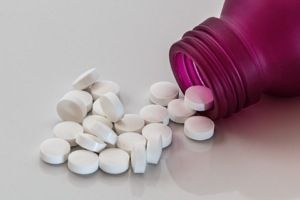News
Dangerous opioid trend developing in Denmark
This article is more than 2 years old.
Children between 14 and 17 are increasingly becoming addicted to the drugs. For many it is their first taste of narcotics

Pills easy to source, say youngsters (photo: Pixabay)
One drug leads to another, youngsters used to be warned: it’s a slippery slope. It all starts with cannabis, and then the harder drugs inevitably follow. The idea was to put them off smoking a spliff, but it rarely worked.
But now school enforcers are having to change their patter, as kids aged 14-17 are leapfrogging cannabis altogether.
Children in Denmark are increasingly taking dangerous opioids related to heroin. Designed to alleviate the suffering of serious pain sufferers, substances such as Dolol (a prescription drug) and tramadol (recently labelled a euphoriant and now illegal) are highly addictive.
It has got so serious that healthcare professionals are urging the authorities to take swift action. According to a survey carried out by TV2 Kosmopol, 25 percent of the Danish municipalities it surveyed (eight of 34) are deeply concerned.
Unable to function without them
The youngsters’ dependency on the opioid pills is so great that some confess to being unable to get out of bed and go to school without them. They also cause nausea, fatigue and dizziness.
“When I ask the young people I’ve had conversations with if they know about these opioid pills, they say: ‘Yes, everyone knows about it, everyone can get them’. And when we ask about it, they know at least five or ten others who take them,” Christina Ekmann, an addiction therapist from Omega, told TV2.
“This drug is related to heroin. Therefore, one becomes addicted to it very quickly. We see a group of young people who we would probably never have seen otherwise, but who end up down here because of their addiction to it.”
Snowball effect
Freya – whose name has been changed by TV2 Kosmopol – fainted from withdrawal symptoms. She fought her way out of her addiction and is now drug-free.
“It all started with half a pill during a break a year and a half ago. I didn’t take opioid pills because I’m having a hard time; it was just lovely,” the 17-year-old girl said.
Freya developed a tolerance that required her to take 800 milligrams of Dolol a day to get an effect after only a few months. A regular dose prescribed by doctors for back problems or removed teeth is 150 milligrams per day.
Per Bjørn Føge Jensen, the chief physician at the Interdisciplinary Pain Center at Rigshospitalet, warns that doses of this size are so dangerous, they could cause somebody to stop breathing.










































